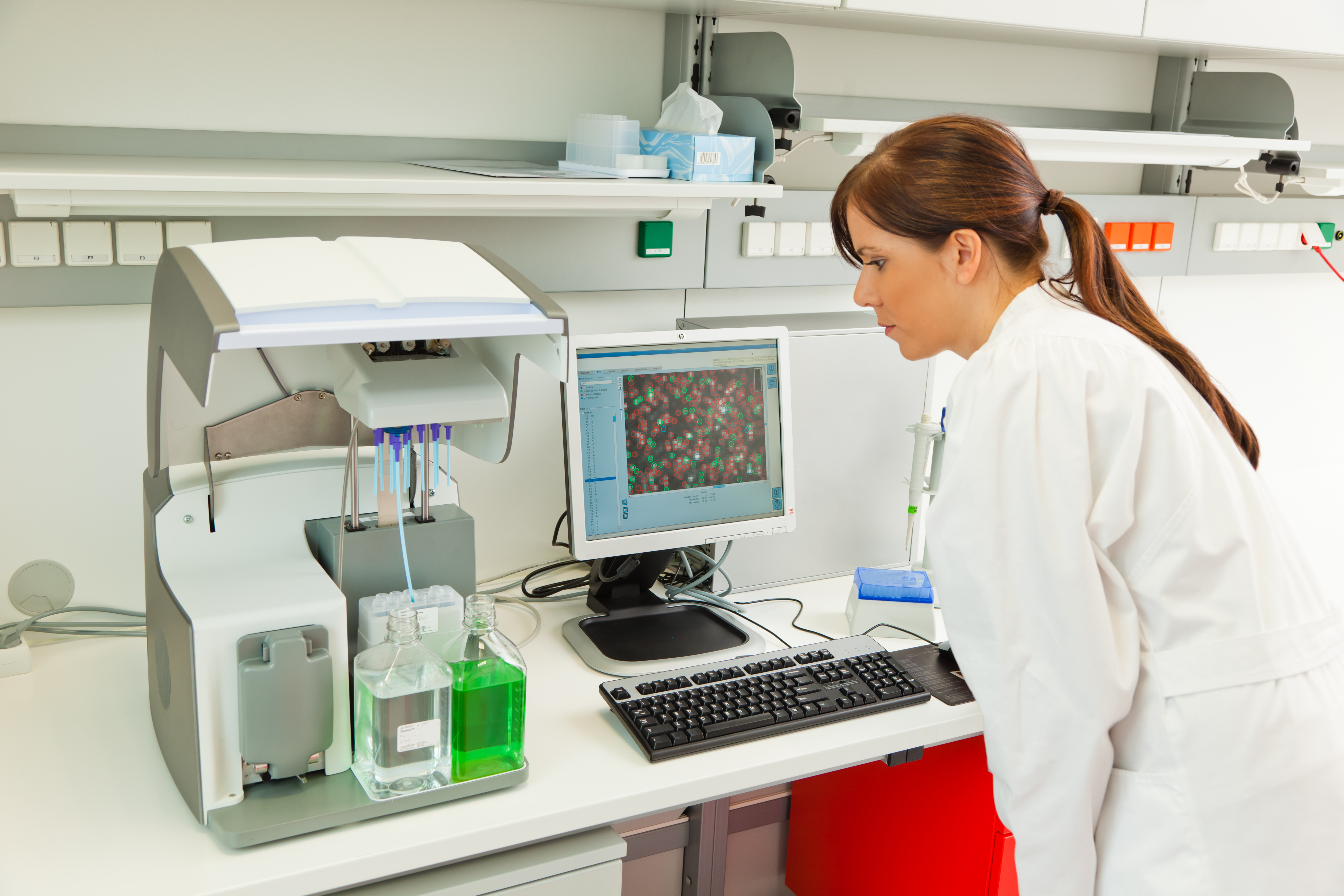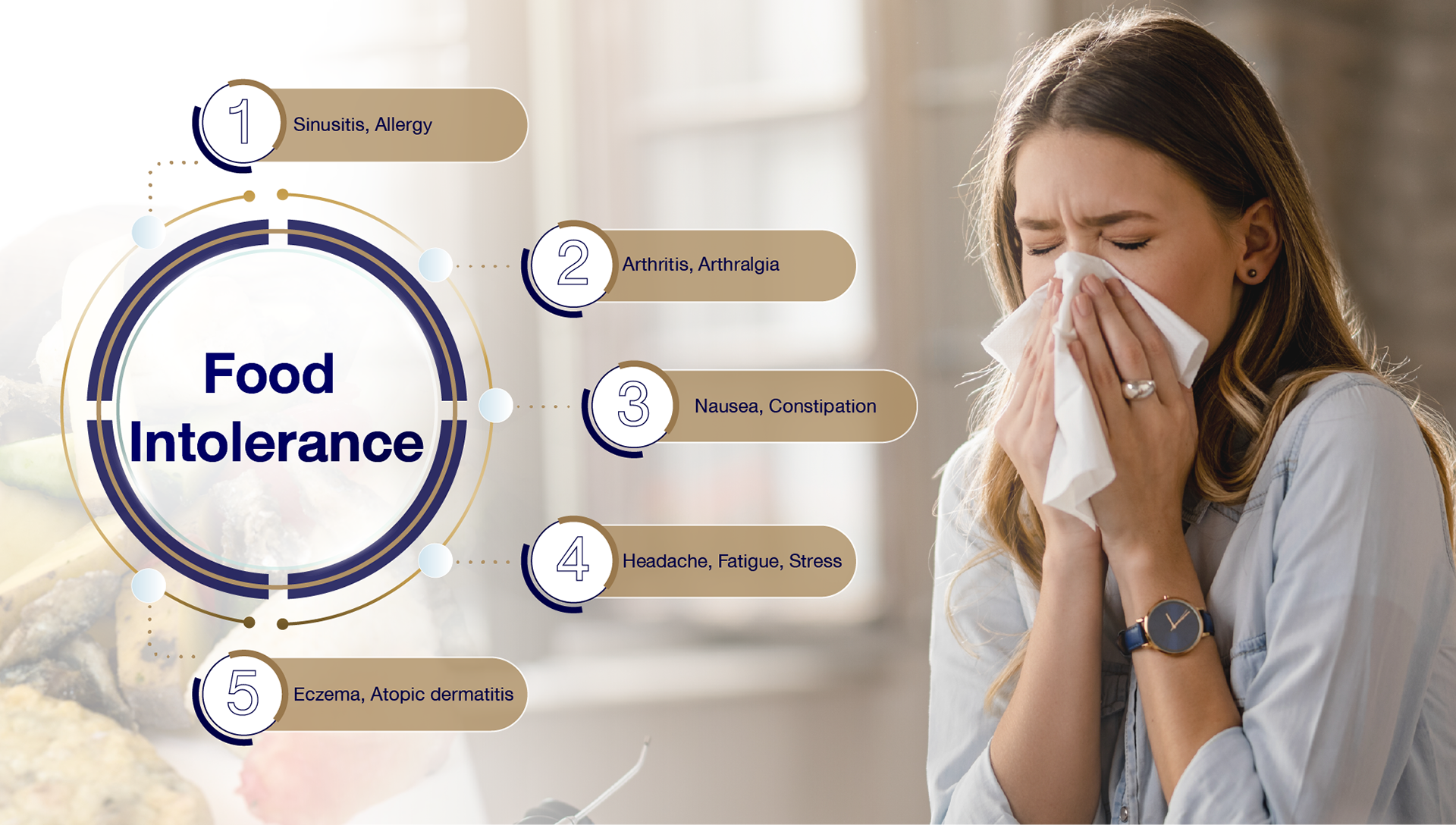
食物过敏测试
Food allergies may be one of the most prevalent health problems in our country and are certainly the biggest problem that I see in my clinic. But if you're like most of my patients, you're probably thinking, "Not me, I don't have a food allergy." Most people think they have a pretty good idea about food allergies. They may know someone who has one and think, "My problem isn't like theirs." Or they may just think that food allergies normally result in hives, a rash, or some kind of medical emergency. In fact, food allergies can be the cause of many chronic health problems.
About Food Allergy Test
The immune system functions like a sentinel standing guard against foreign invaders. In the case of an allergy, the invaders are called allergens. The primary weapon that it uses against invaders is the production of antibodies. The antibodies cause reactions that result in the offending allergens being removed from the body. In many people, foods act as allergens rather than nutrition. This can result in the symptoms of IBS.
The immune system produces numerous kinds of antibodies, called immunoglobulins. IgE and IgG are acronyms for the two different kinds of antibodies produced by the immune system in allergic reactions to food. You might be asking why you need to know this. Conventional allergy testing looks for IgE reactions only. These types of reactions typically occur immediately after contact with or ingestion of the allergen, and in some cases can cause serious, even fatal, health problems. Potential IgE reactions include swelling of the lips and tongue, hives, bloating, abdominal pain, or sudden diarrhea. These are the reactions that people usually think of when they hear the word allergy. However, IgE reactions can also lead to many other symptoms not traditionally recognized as being caused by food allergies.
The problem with this type of testing is that most food allergies are not IgE reactions, but are rather IgG reactions, which usually show up hours or even days after ingestion of the allergen. They are generally not nearly as dramatic as the more severe IgE reactions, and usually result in "mere" constipation, diarrhea, bloating, gas and abdominal pain. Both antibodies are important, and food allergy testing should include both or the cause of IBS may be missed.
About Food Allergy Test
The immune system functions like a sentinel standing guard against foreign invaders. In the case of an allergy, the invaders are called allergens. The primary weapon that it uses against invaders is the production of antibodies. The antibodies cause reactions that result in the offending allergens being removed from the body. In many people, foods act as allergens rather than nutrition. This can result in the symptoms of IBS.
The immune system produces numerous kinds of antibodies, called immunoglobulins. IgE and IgG are acronyms for the two different kinds of antibodies produced by the immune system in allergic reactions to food. You might be asking why you need to know this. Conventional allergy testing looks for IgE reactions only. These types of reactions typically occur immediately after contact with or ingestion of the allergen, and in some cases can cause serious, even fatal, health problems. Potential IgE reactions include swelling of the lips and tongue, hives, bloating, abdominal pain, or sudden diarrhea. These are the reactions that people usually think of when they hear the word allergy. However, IgE reactions can also lead to many other symptoms not traditionally recognized as being caused by food allergies.
The problem with this type of testing is that most food allergies are not IgE reactions, but are rather IgG reactions, which usually show up hours or even days after ingestion of the allergen. They are generally not nearly as dramatic as the more severe IgE reactions, and usually result in "mere" constipation, diarrhea, bloating, gas and abdominal pain. Both antibodies are important, and food allergy testing should include both or the cause of IBS may be missed.
How is food allergy diagnosed?
To diagnose food allergy, a doctor first must determine if the patient is having an adverse reaction to specific foods. The doctor makes this assessment with the help of a detailed history from the patient, the patient's dietary diary, or an elimination diet. He or she then confirms the diagnosis by the more objective skin tests, blood tests, or food challenges.
Food Allergy Test at Panacee
- - Provide quick results within 1-3 working days.
- - Requires only a tiny 0.5 microliter blood sample (Less than 1 cc.).
- - Report results based on up to 222 items, these are all foods that everyone has the opportunity to eat.
- - Use computerized monitoring system, accuracy of the results of the examination in the laboratory. (Personal Bias)
- - Reported evaluation of score results, keeping in mind that severe food allergies in that category.
- - Have nutritionist can help you replace diet program individual your needs.
- - Medical technology is specially trained to make this official, and experience in treating patients.

Food Intolerance (IgG) symptoms
- - Headaches, Migraine
- - Attention deficit
- - Depression, Anxiety
- - Runny nose, Asthma
- - Chronic mouth ulcer
- - Acne and skin rashes
- - Constipation, Abdominal distension
- - Difficult to lose weight
- - Muscle pain or skin inflammation
- - Itchy eyes, black circle under eyes (Allergic Shiners)
- - Nausea, Gastric ulcer
- - Diarrhea, Irritable Bowel Syndrome (IBS)
- - Immune function abnormalities such as Autoimmune diseases, Rheumatoid arthritis, SLE


